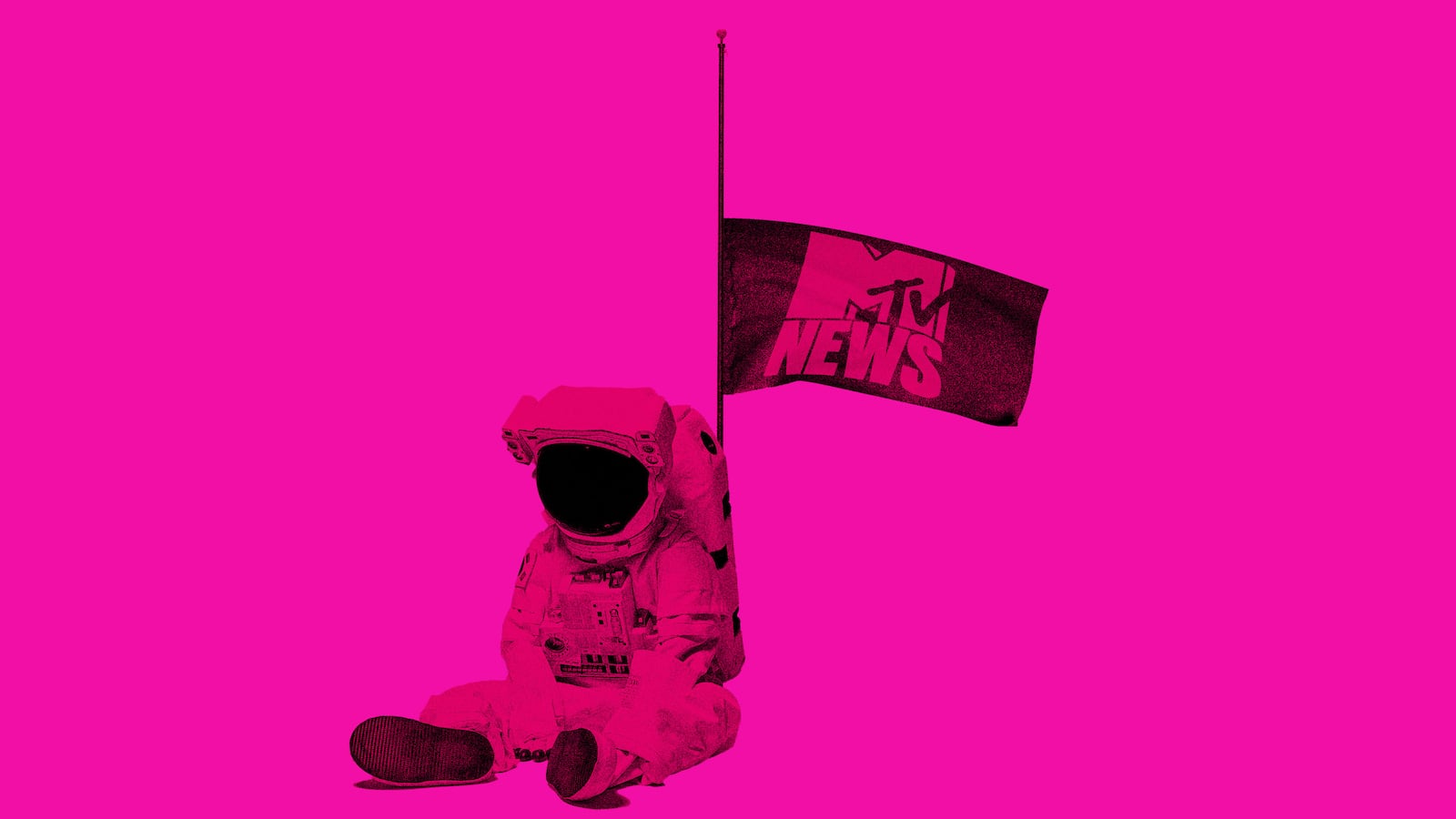In the fall of 2006, the New York punk club CBGB finally closed its battered doors, bringing to an end, after 33 years, the long-receding golden age of punk rock. Predictably, the Bowery air was filled with lamentations. I know, because I was there with an MTV camera crew one day, shooting stand-ups outside the place to mark its inevitable passing. It was a melancholy moment. Over the preceding months, there had of course been much talk of finding a way to save CB’s. Could nothing be done? Nothing at all? As it turned out, no.
Unsurprisingly, in talking to people around that time that I used to see at CBGB back in the day, I learned that they, like me, hadn’t set foot in the place in years. The new music there no longer appealed, and their days of all-night dissolution were over. What these people were missing wasn’t the legendary dive bar itself, it was the time in which the bar’s legend took form. And that time was gone.
Something similar rang down the curtain on MTV News on Tuesday. After 36 years, its time, too, had run out.
Back in the early ’80s, when MTV was a freshly hatched 24/7 fun factory, everything seemed possible. The channel churned out a heady mix of music videos, surreal pop-culture experiments (Remote Control, the game show that launched Adam Sandler and Denis Leary, had a quiz category called “Dead or Canadian”), and much that was refreshingly unexpected. (Andy Warhol had his own show on the channel, and people like David Bowie, Cyndi Lauper and Pete Townshend would suddenly pop up to hard-sell the slogan “I Want My MTV”—a mock-plea devised by the celebrated ad man George Lois to nudge reluctant cable companies to add the upstart channel to their subscriber offerings.)
I arrived at MTV’s scruffy corporate digs at 57th and Broadway, just a few blocks from the offices of Rolling Stone, my previous place of employment, in February 1988. I’d been recruited to help start an MTV news department—despite the fact that I knew nothing about television and quickly demonstrated this fact with a decidedly non-sizzling camera test. But whatever, apparently.
The whole idea of an MTV news department was ridiculous, as many a snickering print journalist might have told you at the time. Imagine this pop-music TV channel, watched only by rock- and rap-besotted youths, having the effrontery to trespass on the hallowed pieties of broadcast news. It was as if nothing of interest to such viewers could be going on in a multi-billion-dollar industry filled with gifted artists, flamboyant showmen, maniacal hype merchants, and, here and there, pitiful clowns and percolating cokeheads.
One of the best things about getting in on something new is that nobody really knows what they’re doing. Or—no, wait: nobody really cares about what they’re supposed to be doing. Especially when what they’re trying to do hasn’t been done before. Early MTV was like that in many ways, and MTV News—as shaped for the next nearly 30 years by Dave Sirulnick, a musically savvy young producer lured over from CNN—was to be similarly improvisational. And irreverent, if I may use a word that’s been beaten into a lie over the course of decades of promiscuous misuse.

I think immediately of Lisa Montgomery—the fearless Kennedy, a News-adjacent VJ—standing on a platform next to NYC Mayor Rudy Giuliani at some Times Square press wallow and raising her microphone mouthward for a demonstration of unmistakable mock-fellatio. MTV suits weren’t happy about this, but the times were against them.
There was also the day that a fax arrived at MTV from Michael Jackson’s record label. This was when Jackson was at the peak of his fame and commercial power, so attention had to be paid to this missive, which announced that from then on, whenever Jackson’s name was uttered on the channel, it had to be preceded by the self-awarded title “King of Pop.” Dave Sirulnick led the News department in laughing at this, although other MTV precincts were persuaded to go along with it. I wonder if this sort of corporate leeway would be granted today.
I also wonder how difficult it must be right now for “entertainment journalists” to get interesting things done without the gales of money that blew through the 1980s and ’90s. Record companies lightened the financial burden of flying to Budapest or Osaka for an encounter with Madonna, or to Paris to meet up with Prince, or to Rio de Janeiro for a reliably bizarre Guns N’ Roses experience; and it helped to have “relationships” with these people (meaning a history of cordial and mutually advantageous interactions). But it was all very expensive in any event. And a lot of work, too—especially for the people who actually did the work – the producers and camera crews and talent-wranglers (“Get Snoop over here!”).
But it was also fun, and often—when you were shooting a woozy segment in an Amsterdam hash bar, for example—it was a blast. Now that MTV News is gone, taken down by changing media and attendant audience attrition, does that mean the high old times of that vanishing period are unrepeatable history? Do young journos of today have nothing to look forward to? Oh please.







